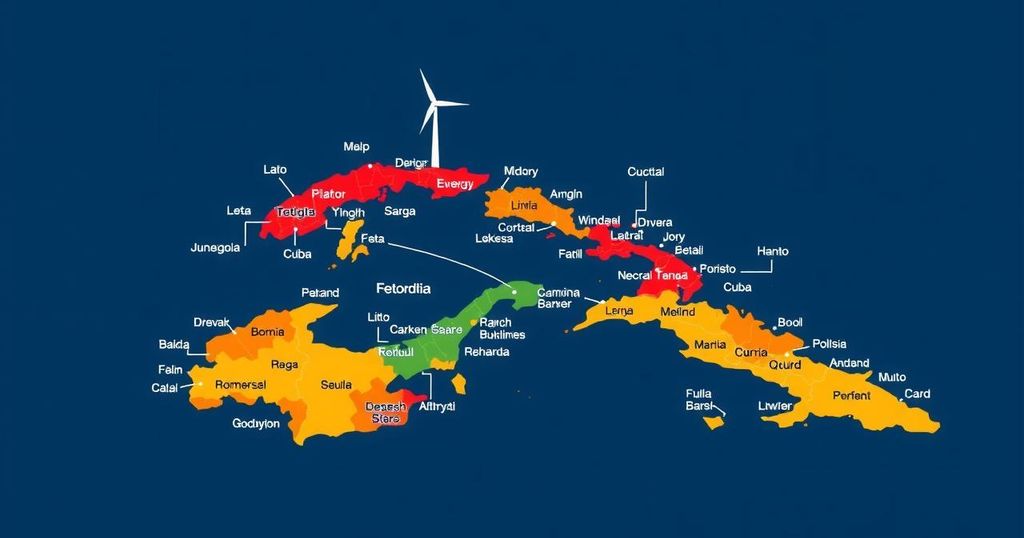Cuba is undergoing a profound crisis characterized by frequent power outages and severe economic stagnation. The infrastructure is largely outdated, with a dependence on fossil fuels and a tightening US trade embargo complicating efforts for recovery. Social unrest has led to protests, while many citizens have chosen to emigrate, reflecting widespread discontent and an uncertain future for the nation.
Havana, Cuba is experiencing severe socio-economic crises as evidenced by a recent countrywide blackout due to an unreliable power grid. This crisis is exacerbated by a combination of poor infrastructure, economic stagnation, and escalating external pressures. The nation confronts not only frequent power outages, some lasting up to 20 hours a day, but also an economy that has nearly ground to a halt, leading to the suspension of non-essential public services, the closure of schools, and non-functional traffic signals in the capital during a time of significant distress. Central to this situation is Cuba’s fragile energy infrastructure, primarily reliant on fossil fuels, which fails to meet even a third of the country’s electricity demands. The electricity supply is mainly derived from aging coal-powered plants that have been operational for over four decades, frequently breaking down or requiring repairs. The country has attempted to mitigate this issue by leasing floating power plants from Turkish firms and deploying additional small diesel generators; however, fuel shortages continue to plague the economy, particularly due to the intensifying US embargo and diminishing oil supplies from Venezuela, its principal ally.
Cuba’s current crises can be traced back to multiple interrelated factors, including an outdated and inefficient energy system, economic hardships linked to government policies, and external embargoes that have restricted trade. Following the collapse of the Soviet Union in the early 1990s, Cuba has struggled with high inflation, acute shortages of essential goods, and a resilience in its authoritarian government amid public dissent. The Covid-19 pandemic further compounded the tourism-crucial economy’s challenges, leading to significant social unrest, as witnessed in substantial protests in July 2021 and 2022, where citizens expressed their grievances over poor living conditions.
In summary, Cuba is at a critical juncture marked by catastrophic energy failures, economic paralysis, and a population in distress. With rising emigration rates reflecting a loss of hope for improvement, the future of the island becomes increasingly uncertain. Nevertheless, the government’s recent measures to permit private businesses suggest a recognition of the dire need for dramatic change and reform.
Original Source: jordantimes.com







